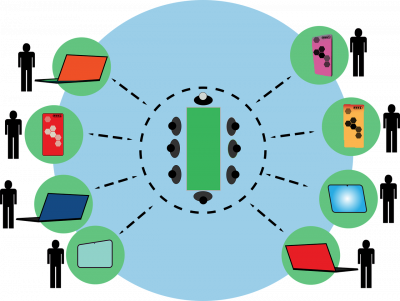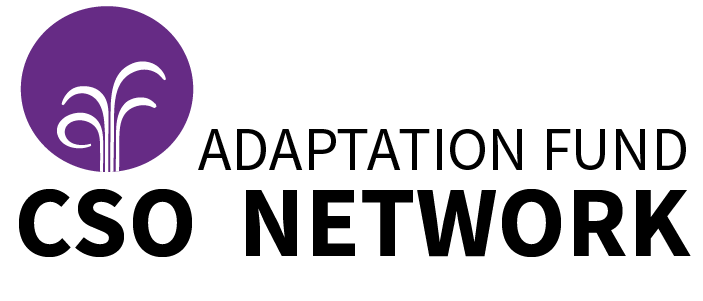Advancing the Adaptation Fund's agenda in the face of COVID-19

While global attention rightly focuses on how we cope with the impacts of the COVID-19 outbreak at present, we should not take our eye off the ball on the issue of climate change adaptation. If anything, this current health disaster shows us how important it is to speed up support for those communities most vulnerable to the impact of climate change.
The pandemic and the climate crisis are poverty multipliers and further increase existing vulnerabilities
Both the coronavirus pandemic and the climate crisis put the health and safety of millions of people at risk, especially the poorest and those most vulnerable among us. These crises also act as poverty multipliers and thus further increase existing vulnerabilities. For the unfolding pandemic, the severe health impacts are immediately noticeable and perceived more tangibly as they can be directly linked to a concrete cause. By contrast, the equally severe health impacts of the climate crisis are often more difficult to attribute and present a slower, more long-term threat to public health. Countries need well-resourced and equitable health systems to combat both the current and potential future pandemics and to protect their communities from health threats caused by the climate crisis.1 Increases in the frequency and intensity of extreme weather events and the expanded range and spread of vector- and water-borne diseases are clearly indicated by climate change and will put health systems under considerable pressure - especially in the global South. To reduce long-term health impacts and protect those most vulnerable, we need to increase people’s resilience and adaptive capacity to both the coronavirus pandemic and climate change impacts. Solutions to both of these threats will require equally dramatic and sustained shifts in behaviour.
The COVID-19 pandemic has taught us that a good response requires a global-to-local approach and to trust our scientists’ assessment of risks. In this context, it is crucial that we not delay any planned climate change adaptation actions and move ahead with all speed to support new adaptation projects in developing countries.
Climate change decision-makers need to continue their work remotely
In this time of global uncertainty we all need to adapt in various ways, including learning to work remotely, and that includes the work of climate change decision-makers such as the Adaptation Fund Board. While we applaud the cancellation of all in-person meetings to limit the virus spread, the Adaptation Fund Board’s decision to hold only a brief virtual meeting for the transition of chairs has been disappointing in a context where if anything greater action is required in the field of climate change adaptation.
Urgency for the Adaptation Fund Board to move ahead with project approvals and lift the country cap
The original Board meeting was scheduled to take place from 31 March to 3 April 2020 in Bonn, Germany, with many pressing items on the agenda. A total of 33 project proposals and concept notes had been submitted to the Fund's Board for consideration - 33 planned projects that are aiming to address the adaptive needs of the poorest and most vulnerable communities in developing countries. Under normal circumstances project planning and approval is already a lengthy process – any further delays in project approvals and implementation should be avoided where possible.
The Adaptation Fund Board also needs to make progress regarding a decision to lift the Fund's USD 10 million country cap, ideally in a way it further incentivises direct access to the Fund's resources for national institutions in developing countries. Many vulnerable countries now have a national institution accredited with the Adaptation Fund and have learned their first lessons in project implementation, but cannot receive additional funding at the moment due to the Fund's country cap. The Adaptation Fund Board needs to address this issue without further delays.
Virtual decision-making is a viable alternative if transparency is ensured
At the recent scaled down virtual Board meeting, one of the Adaptation Fund's Board members blocked progress on any substantive work through virtual meetings, insisting on waiting for the next in-person meeting. Let’s face it – most of us are more comfortable with face-to-face meetings, and the usual behind-the-scenes negotiations and side talks often help to progress decision-making when negotiations get stuck. This is just not feasible in the same way via an online format. We also acknowledge that access to a stable and good internet connection might be more challenging in developing countries. But for many developing country decision-makers it is equally difficult to physically attend international meetings as they have limited budget to cover travel costs and frequently experience challenges in obtaining visas. While developed countries usually send large delegations to international meetings and count on having sufficient staff capacity to cover all issues on the climate change agenda, developing countries often have few delegates that are able to attend these meetings. Thus, holding an international Board meeting virtually is certainly a viable alternative.

Another agenda item that has been postponed is a discussion of how to strengthen civil society engagement with the Fund's Board. As highlighted in the Adaptation Fund NGO Network paper on “Further strengthening civil society engagement in the work of the Adaptation Fund Board”, active civil society engagement is a key element of transparency in the work of the Fund's Board. While the Fund has had a good working relationship with civil society observers to date, there is still room for improvement in enabling active civil society input at Board meetings, in intercessional decision-making processes and in the broader Fund activities. While we applaud that the Secretariat enabled civil society observers to dial into the virtual Board meeting on 2 April 2020, the lack of a substantive agenda did not allow for the inclusion of the customary “Dialogue with Civil Society Organisations”, where country perspectives and key insights into current agenda items are presented by civil society observers during Board meetings. The AF NGO Network remains willing to work on an alternative virtual format to provide those independent perspectives to the Fund's Board and Secretariat.
Ensuring progress despite the upheaval
The COVID-19 outbreak has required significant adaptations for many organisations to the way that they operate, including requiring that they embrace the variety of platforms available for virtual meetings. The Adaptation Fund NGO Network would urge the Adaptation Fund Board to continue with their important work in the current challenging circumstances, and improve their mechanisms for working remotely, while at the same time ensuring transparency and the participation of stakeholders. The Network hopes that the Board will use this opportunity to demonstrate their commitment to progress in the critical field of climate change adaptation, which will help to build the resilience of those most vulnerable to cope with unexpected shocks like pandemics in the future.
1 Arthur Wynes. How climate change and the coronavirus are linked. Consulted at https://www.preventionweb.net/news/view/71155
